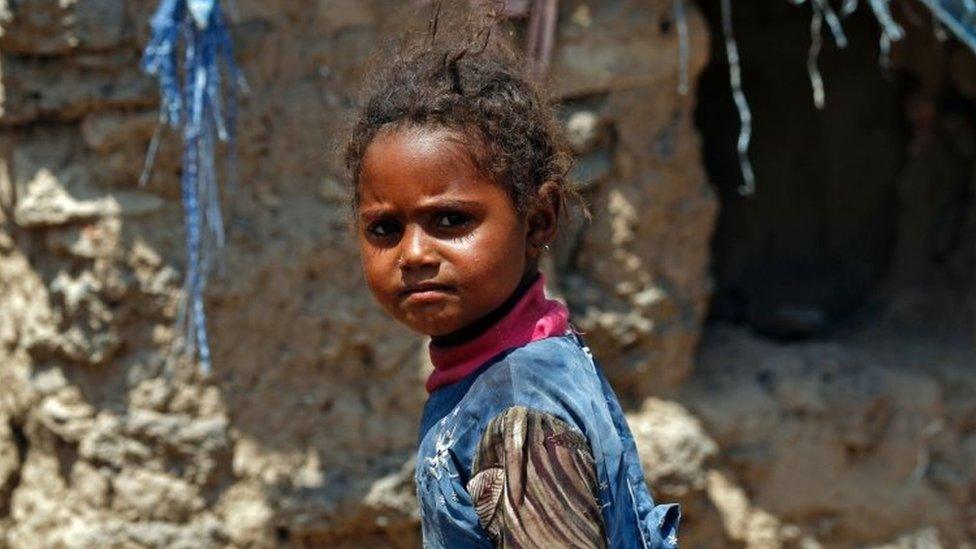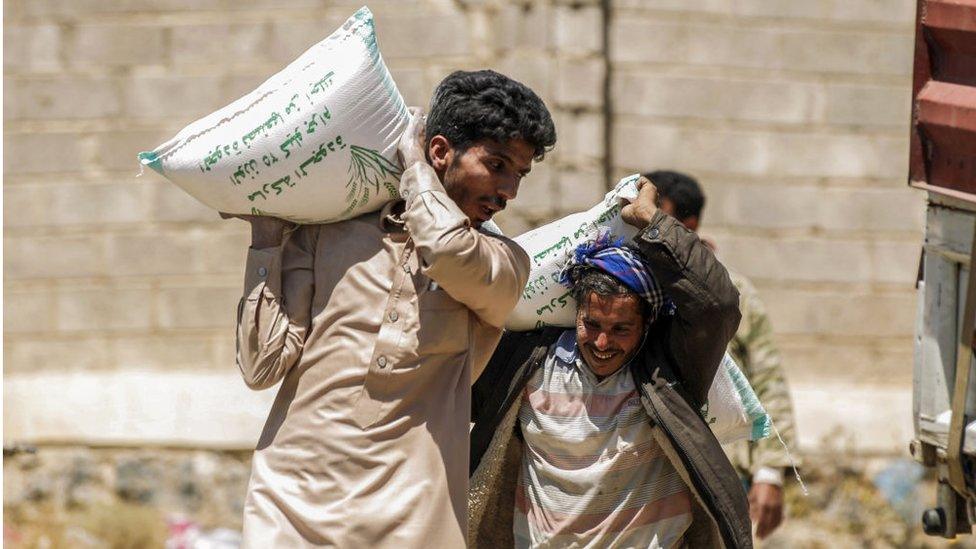Yemen crisis: Donors pledge $1.1bn in aid
- Published

Three quarters of Yemen's population urgently needs help, the UN says
Donors at a conference in Geneva have pledged nearly $1.1bn (£857m) to Yemen to help relieve the "world's largest humanitarian crisis", the UN says.
The UN had previously asked for $2.1bn this year, as aid groups warn the country is on the brink of famine.
Two years of war between a Saudi-led coalition supporting Yemen's government and Houthi rebels have devastated the country.
Even before the conflict, Yemen was the poorest country in the Middle East.
Speaking in Geneva on Tuesday, UN Secretary General Antonio Guterres said the conference had been a remarkable success.
But he warned that the money had to translate into effective support for Yemenis.
"That is why we basically need to make sure that there is unhindered access for all humanitarian actors to reach all the people in need, everybody in need, and everywhere inside Yemen," he said.
The UN hopes to get the remaining $1bn it asked for soon, the BBC's Imogen Foulkes in Geneva reports.
The sheer scale of the deprivation is staggering: of Yemen's 25.6m people, almost 19m are in urgent need of assistance, the UN says.
Almost 7m are "severely food insecure", meaning they need food aid immediately. Two million children are acutely malnourished.

"The situation is nothing short of catastrophic," says Robert Mardini from the International Committee of the Red Cross (ICRC), who recently returned from Yemen.
"What everyone tells you is that life has become unbearable."
Despite the aid pledges, the challenges for aid agencies will remain immense, our correspondent says.
Save the Children would like funding specifically for education, pointing out that more than 2m children are unable to go to school because of the conflict.
The ICRC, which has been trying to support hospitals in Yemen, would like more attention to health care, which is said to be on the verge of total collapse.

The UN says the situation in Yemen is the largest humanitarian crisis in the world
Fewer than half Yemen's hospitals are functioning at all, and those that are face daily shortages of staff, medicines, and electricity.
But even with the extra funding in place, there the delivery of aid poses huge challenges.
The key port of Hudaydah, which aid agencies describe as the country's "lifeline", is now virtually closed due to a partial blockade by Saudi-led coalition forces and the destruction of cranes in air strikes.
This means that about only 30% of the supplies Yemen needs are getting into the country at all.
The BBC's Nawal al-Maghafi visits an area of Yemen where major aid agencies can no longer operate
The ICRC has given up trying to get anything through Hudaydah and is sending supplies through the smaller southern port of Aden.
This means more restrictions and delays as there are "100 checkpoints" between Aden and Sanaa, Mr Mardini says.
The UN has repeatedly called on Yemen's warring parties to keep Hudaydah open, amid fears the Saudi-led coalition may be preparing an all-out assault on the port to try to deal the rebels a major blow.
"People in Hudaydah are already on the edge of famine," says Caroline Anning of Save the Children. "An attack would tip them over."
